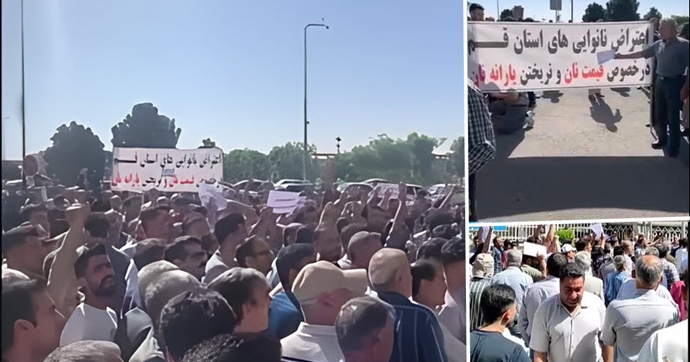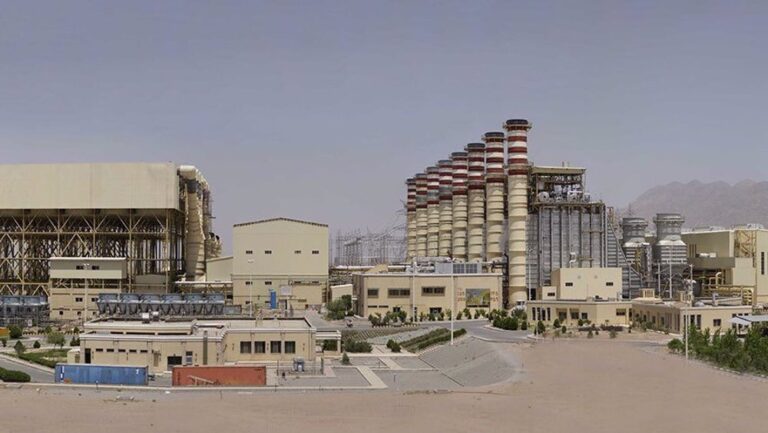Iranian Bakers Stage Nationwide Protests Against Blackouts and Skyrocketing Prices
In a significant display of discontent, bakery workers across Iran organized coordinated protests on Saturday, highlighting the urgent need for government action as they face soaring operational costs and unpaid subsidies. These demonstrations unfolded in several cities, including Isfahan, Ahvaz, Birjand, Kermanshah, Qom, Shahinshahr, and Mashhad, with bakers expressing their frustrations over the economic pressures jeopardizing their livelihoods.
Protesters in these cities held banners emblazoned with messages such as, “We are bakers, not slaves. Hear our voice,” while chanting, “Enough with the promises, our tables are empty.” Footage verified by Iran International captured bakers in Mashhad returning their card readers in a powerful act of protest. In Qom, a baker lamented the financial strain he has endured, stating, “I worked 27 days for nothing. The old saying goes, whether it’s a donkey or a fool, it’s still working.”
The bakers’ grievances stem from a combination of factors contributing to their plight:
- Failure of the Government’s Integrated System: Many bakers have pointed to the ineffective implementation of the government’s support mechanisms.
- Delays in Subsidies: Promised financial assistance under President Masoud Pezeshkian’s administration has not materialized, leaving bakers struggling to cope.
- Rising Operational Costs: The cost of fuel, insurance, and raw materials has surged significantly, positioning bakers in a precarious situation.
- Frequent Power Outages: Many bakers have reported that repeated blackouts have ruined large batches of dough, further exacerbating their financial struggles.
In a poignant video, one baker demonstrated his frustration by smearing spoiled dough on his face, symbolizing the despair caused by ongoing blackouts. These protests are not isolated incidents; they follow weeks of similar actions outside governorate and municipal offices, where demonstrators have called for the resignation of what they deem “incompetent officials.”
On May 7, Gilan governor Hadi Haghshenas acknowledged the unsustainable nature of current bread prices for producers. He remarked, “Given the increase in labor wages and utility costs, a price adjustment is reasonable,” and indicated that a working group would soon finalize a decision regarding revised rates.
The protests highlight a broader issue of economic discontent in Iran, where inflation and inefficient subsidy management have intensified tensions over essential commodities. Bakers warn that without immediate assistance from the government, the price of Iran’s most essential staple—bread—could become unaffordable for ordinary households.
As these protests continue to unfold, the situation remains critical for bakery workers across Iran. The ongoing struggle not only affects their livelihoods but also threatens the availability of one of the country’s fundamental food sources. The demand for government intervention is growing louder, and the coming days may prove pivotal in determining the future of the baking industry in Iran.
In conclusion, the collective voice of the bakers reflects a broader sentiment of frustration among various sectors of the economy. The Iranian government faces mounting pressure to address these challenges promptly, ensuring that essential services and products remain accessible to the public. As the protests gain momentum, it remains to be seen how officials will respond to the urgent needs of the community.






